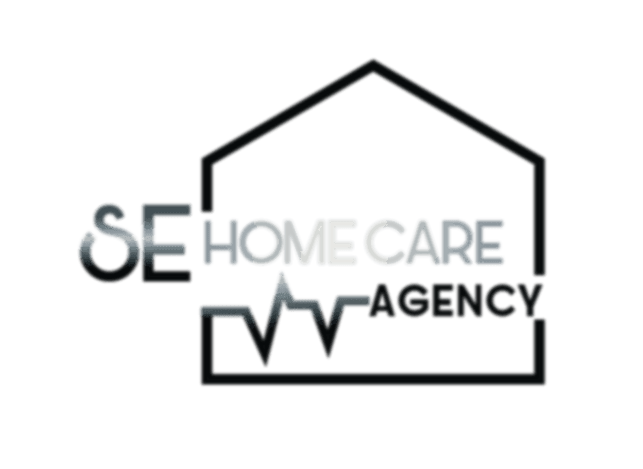8 Signs Your Loved One Needs Companion Care

Published on April 20th, 2023
As we age, it's natural for us to require more assistance with our daily activities. However, recognizing when our loved ones need extra care and support can be challenging. It's essential to keep an eye out for certain signs that may indicate that they require companion care.
In this blog post, we'll cover eight signs that your loved ones need companion care and how our nursing care business, Sterns Estate Home Care Agency, can provide the necessary support to improve their quality of life.
8 Signs from Your Loved Ones to Get Companion Care
Difficulty with Daily Tasks
One of the most apparent signs that your loved ones need companion care is struggling with their daily tasks. This can include difficulty with personal hygiene, dressing, or grooming, and household chores such as cleaning, cooking, or grocery shopping. You may notice that they forget to take their medication or struggle with mobility, leading to an increased risk of falls.
It's crucial to understand that these difficulties can significantly impact their quality of life, causing them to feel isolated, frustrated, and helpless. Companion care from our trained professionals can provide them with the support they need to remain independent and maintain their dignity.
Isolation and Loneliness
Isolation and loneliness are significant issues for seniors, especially those who live alone or have limited social interaction. Your loved ones may feel lonely and isolated, even if they have family or friends nearby. They may avoid social activities, become withdrawn, or lose interest in hobbies they once enjoyed.
Companion care can help combat these feelings of isolation by providing social interaction and engagement. Our caregivers can provide companionship, engage them in activities they enjoy, and encourage socialization with friends and family.
Changes in Mood or Behavior
Significant changes in mood or behavior can indicate that your loved one needs companion care. They may appear irritable, depressed, or anxious, and their overall mood may be low. They may also exhibit a lack of motivation or interest in things they previously enjoyed.
These changes may be due to physical, emotional, or mental health issues, and it's essential to address them promptly. Companion care can provide a sense of security and comfort, improving their mental health and overall well-being.
Decline in Physical Health
A decline in physical health can also be a sign that your loved ones need companion care. They may have difficulty with mobility, balance, and coordination, leading to an increased risk of falls or injuries. Chronic health conditions such as arthritis, dementia, or Alzheimer's disease may also require additional support.
Companion care from our trained professionals can provide personalized care plans to address your loved one's unique needs and ensure they receive the appropriate care and attention.
Forgetfulness and Confusion
Forgetfulness and confusion are common signs that your loved one may need companion care. They may forget to take their medication or miss appointments, leading to potential health risks. They may also struggle with day-to-day tasks, such as managing finances or household responsibilities.
Companion care can provide assistance with these tasks, ensuring your loved one remains safe and healthy. Our trained professionals can also help manage their medications and appointments, reducing the risk of adverse health outcomes.
Changes in Eating Habits
Changes in eating habits can also indicate that your loved one needs companion care. They may forget to eat, lose their appetite, or have difficulty preparing nutritious meals. Poor nutrition can lead to a range of health issues, including malnutrition and dehydration.
Companion care can provide assistance with meal preparation, ensuring your loved one receives proper nutrition and hydration. Our trained professionals can also monitor their eating habits and identify any potential issues early on.
Difficulty with Transportation
Difficulty with transportation can be another sign that your loved one needs companion care. They may have difficulty driving, accessing public transportation, or arranging transportation to appointments or social activities. This can lead to isolation and a lack of engagement in the community.
Companion care can provide transportation assistance, ensuring your loved one can attend appointments, run errands, and socialize with friends and family. Our trained professionals can also help with mobility assistance, making sure your loved one is safe while traveling.
Safety Concerns
Finally, safety concerns can indicate that your loved one needs companion care. They may have difficulty with mobility or balance, increasing the risk of falls and injuries. They may also forget to turn off appliances or leave doors unlocked, putting their safety at risk.
Companion care can provide safety monitoring, ensuring your loved one's home is safe and secure. Our trained professionals can also provide mobility assistance, reducing the risk of falls and injuries.
Conclusion
Recognizing the signs that your loved one needs companion care can be challenging, but it's essential to take action to improve their quality of life. At Sterns Estate Home Care Agency, we understand the importance of providing personalized care that meets the unique needs of each client. Our trained professionals can provide the necessary support to ensure your loved one remains independent, safe, and healthy.
If you've noticed any of these signs from your loved ones or have concerns about their well-being, please reach out to us at (267) 202-5200 or [email protected]. We're here to help and provide the care and support your loved one deserves.
